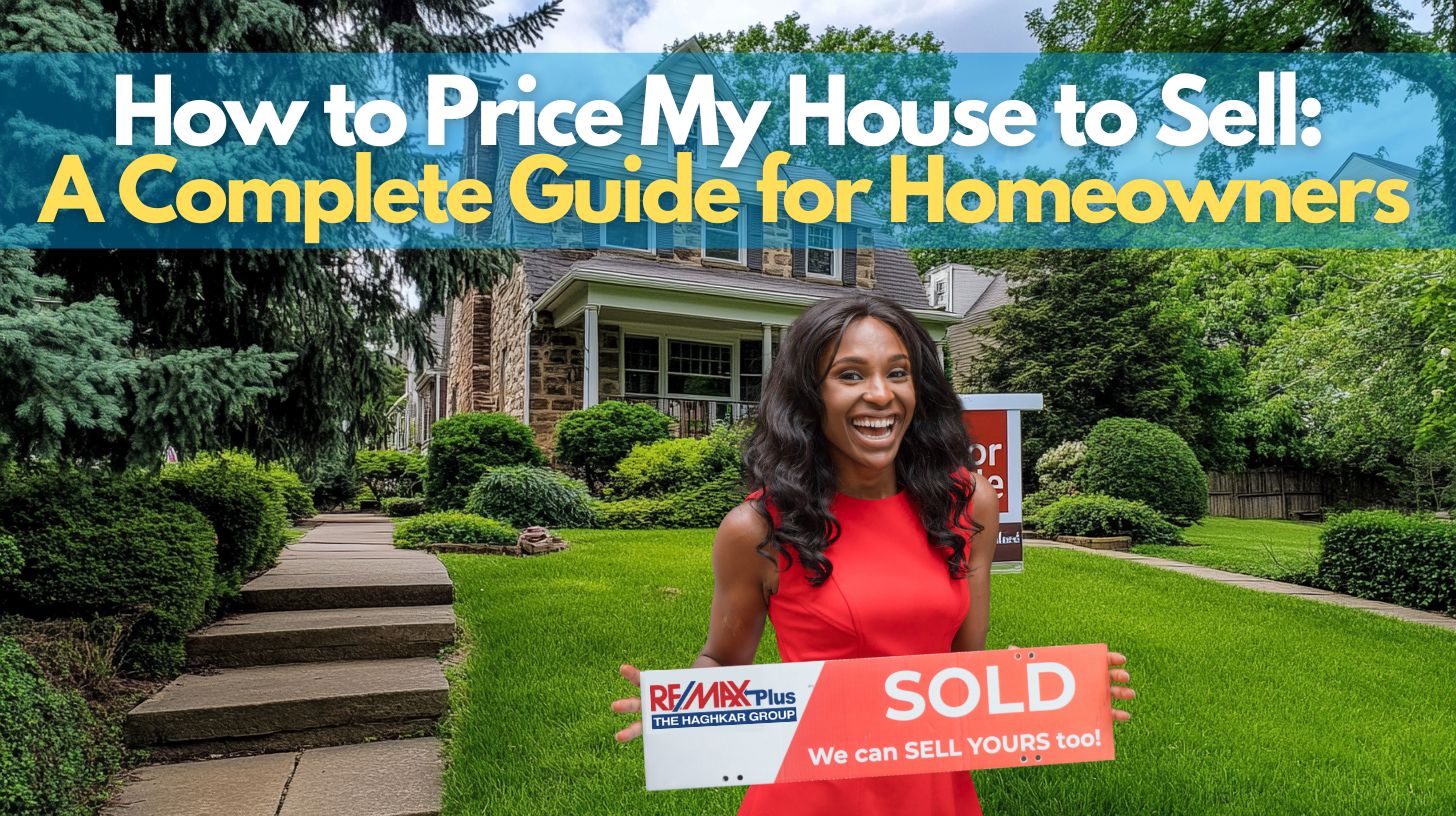
03 May How to Price My House to Sell: A Complete Guide for Homeowners
How to Price My House to Sell: A Seller’s Guide
Estimated Reading Time: 8 minutes
Key Takeaways
- Pricing your home correctly is critical for a successful sale.
- Various factors influence your home’s value, including location, size, condition, and market conditions.
- Use a combination of valuation methods, including home value estimators, comparative market analysis, and professional appraisals.
- Avoid common pricing mistakes like overpricing, underpricing, and emotional pricing.
- Stay informed about current market conditions to adjust your pricing strategy.
- For expert advice, consider consulting real estate professionals.
Table of Contents
- Understanding Your Home’s Worth
- Using Home Value Estimators
- Comparative Market Analysis (CMA) in Real Estate
- Professional Home Appraisals
- Combining Methods for Accurate Pricing
- Common Mistakes to Avoid in Pricing
- Current Market Considerations
- Achieving Market-Ready Pricing
- Ready for Expert Advice?
Understanding Your Home’s Worth
Knowing what is my house worth involves estimating the market value based on several factors:
- Location and Neighborhood Desirability
- Proximity to essential amenities such as schools, parks, and other facilities significantly influences the value.
- Square Footage and Lot Size
- Bigger homes or lots generally command higher prices, appealing to families seeking more space.
- Number of Bedrooms and Bathrooms
- Different markets may favor specific configurations, which can impact value and desirability.
- Home Condition and Age
- Newer and well-maintained homes often fetch higher prices than older or less maintained properties.
- Recent Upgrades or Renovations
- Modern features like updated kitchens or bathrooms can add substantial value. Learn more
- Current Market Conditions
- Being aware of whether it’s a seller’s or buyer’s market helps adjust the price dynamically. Find out more
- Supply and Demand in Your Area
- Lower inventory can drive prices up, reflecting high demand.
- Interest Rates and Economic Factors
- Favorable interest rates can enhance buyer purchasing power, potentially boosting home value. Read more
Using a comprehensive approach that considers these factors can lead to accurate pricing, attracting serious buyers and maximizing your return. For more detailed information, check the National Association of Realtors’ guidance on determining the asking price here.
Using Home Value Estimators
Home Value Estimator Tools
Automated Valuation Models (AVMs) are online tools that provide instant home valuations and act as a good starting point for understanding how to price my house to sell.
Pros of Online Estimators
- Convenience: Access them 24/7 from any device.
- Speed: Instantaneous estimates eliminate waiting times.
- Cost: Free access should fit any seller’s budget.
Cons of Online Estimators
- Data Limitations: Often lack the latest sales or changes in property condition.
- Accuracy Issues: Do not consider home improvements or unique features.
- Generalization: Offer broad estimates that may not be precise.
Zestimate Accuracy
Zillow’s Zestimate is one of the most popular tools for sellers. It combines algorithms with public data to estimate property value. However, be aware that its accuracy might deviate from actual market value. Use Zestimate as a helpful reference point but pair it with additional methods for a more rounded view. You can read more about it on Zillow’s pricing page here.
It’s recommended to use estimators for initial understanding and verify them with more precise approaches.
Comparative Market Analysis (CMA) in Real Estate
Understanding Comparative Market Analysis
A Comparative Market Analysis (CMA) involves assessing your property’s value by comparing it to similar properties that have recently sold in your area, helping you set a competitive and fair market price.
How to Conduct a CMA
- Identify Comparable Properties (Comps)
- Search for properties with similar location, size, age, and features.
- Analyze Recent Sales Data
- Review sale prices, adjust them based on differences, and consider recent sales.
- Assess Active Listings
- This helps understand your current competition in the neighborhood.
- Evaluate Market Trends
- Factors like the price per square foot and the average time on market provide critical insights.
The CMA offers a data-driven price range and shows what buyers are willing to pay, helping avoid common pitfalls like overpricing. Engaging a real estate expert for a detailed CMA is a smart move, as they bring local expertise that can further refine your pricing strategy. Check The Own Team’s guide for more info here.
Professional Home Appraisals
When to Seek Professional Home Appraisals
Professional appraisals provide unbiased valuation conducted by experts and are especially valuable when:
- Dealing with unique properties with no nearby comparables.
- Approaching major financial decisions like refinancing or settling an estate.
- You need a document to support your asking price during negotiations.
- Seeking peace of mind through an expert-verified market value.
Average Home Appraisal Cost
Usually, this ranges from $300 to $500, varying by location and property size. Despite the cost, appraisals provide valuable peace of mind and credibility when setting your home price. Learn more about this process on Bankrate’s guide here.
Professional appraisals can bolster your confidence and strengthen your negotiation stance, making them a worthwhile investment under the right circumstances. Tips to Increase Your Home Appraisal
Combining Methods for Accurate Pricing
The most effective pricing strategy involves combining various valuation methods to ensure a realistic and competitive asking price:
- Step #1: Start with a Home Value Estimator for a quick, albeit generalized, baseline.
- Bear in mind their limitations for accuracy. Check Zillow’s pricing tips for more insights here.
- Step #2: Conduct a Comparative Market Analysis for a data-driven approach.
- Delve into recent similar sales and adapt your strategies. Realtor.com provides detailed guidance here.
- Step #3: Obtain a Professional Appraisal if needed.
- This offers an unbiased expert opinion that can complement the CMA insights. Bankrate also covers appraisal insights here.
Balancing these methods ensures a well-rounded view that accounts for different perspectives and nuances.
Common Mistakes to Avoid in Pricing
Overpricing Your Home
High listing prices can lead to several pitfalls:
- Attracts fewer buyers, decreasing interest.
- Extends the time on the market.
- Forces eventual price reductions, potentially signaling desperation.
- Could result in selling for less than market value.
Underpricing Your Home
Though it may quickly draw interest, underpricing has its drawbacks:
- Risks leaving profit on the table.
- Might cause buyers to feel suspicious about hidden issues.
Emotional Pricing
Balancing attachment with data-driven decisions avoids pitfalls:
- Don’t base the price on personal attachment or sentimental value.
- Instead, rely on objective valuations and current market data for accuracy.
Accurate pricing finds the balance between attracting buyers and maximizing profitability. Be informed, objective, and data-driven in all decisions to achieve these goals. What to Do If Your Home Isn’t Selling
Current Market Considerations
Understanding both overarching and local market dynamics is key to successful pricing:
- Interest Rates
- These influence buyer purchasing power and can shift affordability levels.
- Inventory Levels
- Understand whether it’s a seller’s market (low inventory) or a buyer’s market (high inventory) to adapt your strategy.
- Economic Indicators
- Stay informed on employment rates, consumer confidence, and economic trends that may impact housing market dynamics.
Locally, watch for neighborhood developments or changes that may affect desirability. To ensure your strategy adapts to these changes, stay up-to-date with local data and consult real estate experts. The National Association of Realtors offers further insight here.
Achieving Market-Ready Pricing
Recapping these key strategies and insights equips you to set a price that is competitive and attractive to buyers while meeting your financial objectives. Leveraging multiple valuation methods and avoiding common mistakes means you can position your home optimally to achieve your sale goals.
By aligning your pricing strategy with market realities and your home’s unique features, you have all the tools required for success.
Ready for Expert Advice?
Price your home with confidence by connecting with experienced professionals. Using reputable home value estimators is a solid start, but for personalized guidance, consider consulting real estate professionals who can offer tailored insights. Connect with RE/MAX Plus to access seasoned agents who can help you navigate the intricacies of the market and maximize your home’s sale potential. Whether you’re ready to sell or just starting to explore, our agents are here to support you every step of the way.

